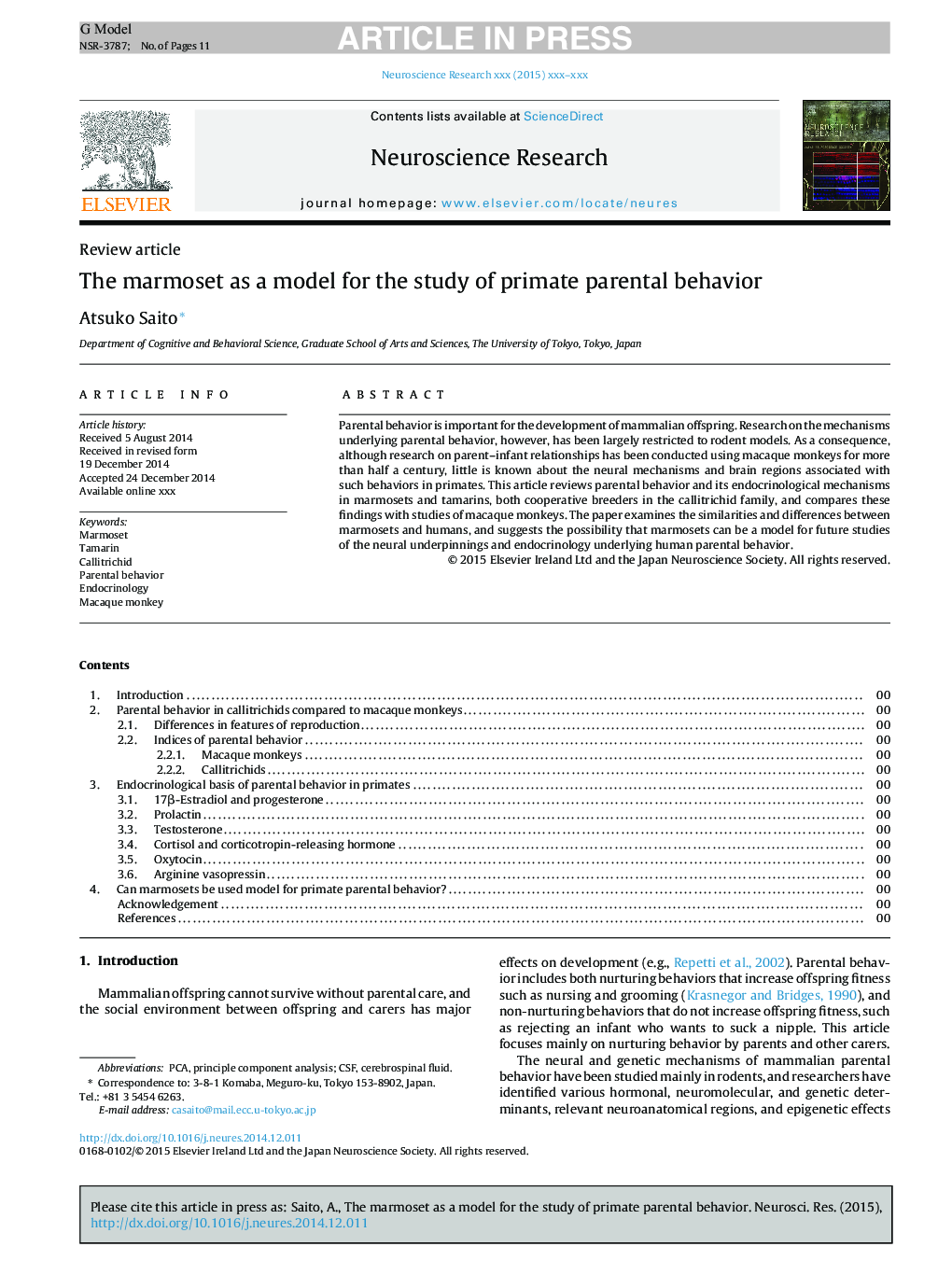| Article ID | Journal | Published Year | Pages | File Type |
|---|---|---|---|---|
| 6286135 | Neuroscience Research | 2015 | 11 Pages |
Abstract
Parental behavior is important for the development of mammalian offspring. Research on the mechanisms underlying parental behavior, however, has been largely restricted to rodent models. As a consequence, although research on parent-infant relationships has been conducted using macaque monkeys for more than half a century, little is known about the neural mechanisms and brain regions associated with such behaviors in primates. This article reviews parental behavior and its endocrinological mechanisms in marmosets and tamarins, both cooperative breeders in the callitrichid family, and compares these findings with studies of macaque monkeys. The paper examines the similarities and differences between marmosets and humans, and suggests the possibility that marmosets can be a model for future studies of the neural underpinnings and endocrinology underlying human parental behavior.
Keywords
Related Topics
Life Sciences
Neuroscience
Neuroscience (General)
Authors
Atsuko Saito,
